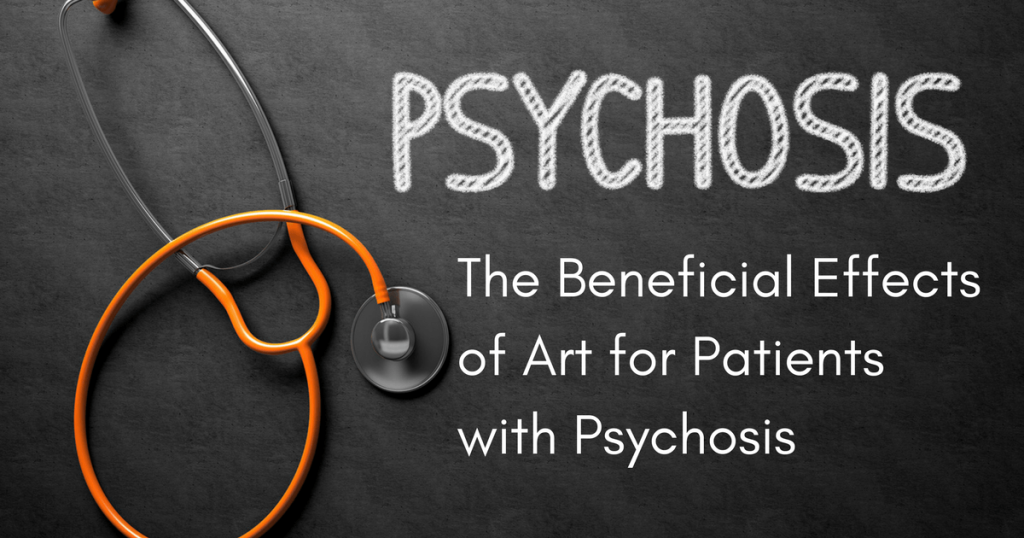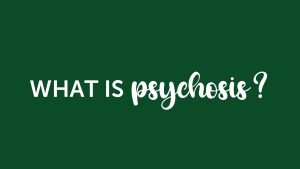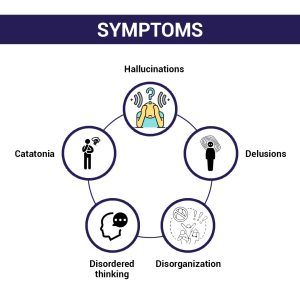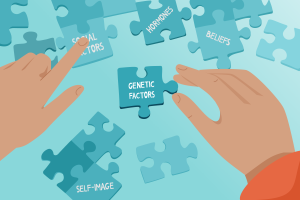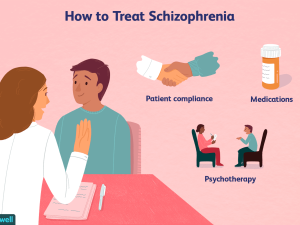The word “psychotic” is often thrown around in casual conversation, but not everyone knows what it means. Psychosis is an umbrella term that includes lots of ways for people to feel bad. These can cause them to have trouble doing things, like day-to-day activities. There are many different types of psychosis, and some are more common than others. One type of psychosis includes schizophrenia, which will be discussed in detail below.
Contents
- 1 What Is Psychosis?
- 1.1 Types Of Psychosis
- 1.2 Symptoms Of Psychosis In Children
- 1.3 Factors Of Psychosis In Children
- 1.4 Seven Reasons Why Children Become Psychotic
- 1.5 How To Diagnose Psychosis In Children?
- 1.6 What Are The Treatment Options For Psychosis In Children?
- 1.7 How Can I Help My Child Cope With Psychosis?
- 1.8 Can Psychosis In Children Be Prevent?
- 1.9 How To Help Someone With Psychosis?
- 2 Conclusion
- 3 A Word From Therapy Mantra
What Is Psychosis?
Psychosis is a mental health condition that causes people to see or hear things that aren’t there, and to have distorted beliefs about what is happening around them. This can make it very hard for them to think clearly, make decisions, or relate to others.
Types Of Psychosis
There are many different types of psychosis. The most common type is called schizophrenia. Schizophrenia affects about one in 100 people. Other types include:
- Brief psychotic disorder – this lasts for less than a month and usually happens after a person has been through a lot of stress.
- Schizoaffective disorder – which includes symptoms of both schizophrenia and bipolar disorder or depression.
- Delusional disorder – where a person has strong delusions, but no other signs of psychosis.
- Hallucinatory disorder – where a person sees, hears, smells, or feels things that aren’t there.
- Paranoid disorder – where a person has strong suspicions about other people’s motives and is very mistrustful of others.
Symptoms Of Psychosis In Children
There are many different symptoms of psychosis, and they can vary from child to child. Some of the most common symptoms include:
- Seeing or hearing things that aren’t there
- Having strong delusions (believing something that isn’t true)
- Feeling like someone is out to get you (paranoia)
- Not being able to think clearly or make decisions
- Feeling very confused or disorganized
- Not being able to relate to others normally
- Being extremely agitated or restless
- Having mood swings
Factors Of Psychosis In Children
There are several factors that might lead to a child developing a psychosis. The different causes of schizophrenia in children can be broken down into:
- Genetics – There is some evidence that sometimes genes can cause mental health problems such as schizophrenia. For example, many people with schizophrenia have family members who also have schizophrenia or other mental health problems. There is some evidence that people with schizophrenia might have genes in their bodies that make them more likely to get schizophrenia. This theory is supported by the fact that many sufferers of schizophrenia also deal with other mental health problems in their lives.
- Neurodevelopment – The paths that are responsible for the brain’s cognitive development do not just happen automatically during childhood and adolescence. They stay open to influence throughout life. Therefore, if childhood goes awry in some way or another, the brain does not necessarily develop in a normal and healthy way. If this is true, it suggests that developing schizophrenia later in life might be easier once the groundwork for such a disorder has already been laid down during childhood.
- Neurotransmitters – many experts believe that certain chemical imbalances within the brain, involving neurotransmitters such as dopamine and glutamate, play a significant role in many cases of psychosis and schizophrenia.
- Environmental – There is substantial research to suggest that childhood trauma and other environmental factors may increase the risk of developing schizophrenia later on in life. This suggests that modifiable factors such as drug use and social circumstances may also play a role in the development of schizophrenia.
Seven Reasons Why Children Become Psychotic
The eight reasons why children become psychotic are:
- Genetics – There is a strong genetic component to psychosis, and children who have a family history of mental illness are more likely to develop a psychotic disorder.
- Brain abnormalities – Certain changes in the brain can increase the risk of developing psychosis.
- Prenatal exposure to drugs or alcohol – Exposure to these substances during pregnancy can increase the risk of a child developing psychosis later in life.
- Traumatic experiences – Traumatic experiences such as abuse or neglect can contribute to the development of psychosis.
- Environmental factors – Living in an unstable or chaotic environment can increase the risk of a child developing psychosis.
- Medical conditions – Some medical conditions, such as epilepsy or HIV, can increase the risk of a child developing psychosis.
- Psychotic medications – Taking certain medications can increase the risk of a child developing psychosis.
How To Diagnose Psychosis In Children?
If you are worried that your child might be experiencing psychosis, it is important to get them assessed by a mental health professional as soon as possible. There is no one test to diagnose psychosis in children. A mental health specialist will usually ask about your child’s symptoms, family history, and any other relevant information. They may also carry out some assessments or tests to get a better understanding of your child’s condition.
What Are The Treatment Options For Psychosis In Children?
There is no one-size-fits-all approach to treating psychosis in children. Treatment will vary depending on the child’s individual needs. However, some of the most common treatments include:
- Medication – Antipsychotic medication is often prescribed to help manage psychotic symptoms.
- Psychotherapy – This can involve different types of therapy, such as cognitive-behavioral therapy (CBT) or family therapy.
- Education and support. It is important for parents and caregivers to get education and support when their child has a psychotic disorder, so they can learn how best to cope with the condition.
How Can I Help My Child Cope With Psychosis?
If your child has a psychotic disorder, it is important that you provide them with love and support. There are some things you can do to help your child cope:
- Talk openly about the condition – Let your child know that they can talk to you about anything, and don’t be afraid to ask them any questions you have.
- Encourage positive activities – Try to encourage your child to participate in positive activities such as sports, music, or creative arts.
- Be patient – Remember that it will take time for your child to adjust to their diagnosis, and there will be good days and bad days. Be patient and supportive during both good and bad times.
Can Psychosis In Children Be Prevent?
At this time, there is no known way to prevent psychosis from developing in children. However, early diagnosis and treatment are essential for the best possible outcome.
- If you worry about your child, please seek professional help as soon as possible.
- If you worry that your child is experiencing psychosis, it is important to get an assessment by a mental health professional as soon as possible.
- There is no one test to diagnose psychosis in children. A mental health specialist will usually ask about your child’s symptoms, family history, and any other relevant information.
- They may also carry out some assessments or tests to get a better understanding of your child’s condition.
How To Help Someone With Psychosis?
If you know someone who is experiencing psychosis, there are some things you can do to help them:
- Be supportive – let the person know that you care about them and are there for them.
- Encourage positive activities – try to encourage the person to participate in positive activities such as sports, music, or creative arts.
- Stay calm – it is important not to get overwhelmed or have stress around someone who is experiencing psychosis. Try to stay calm and collected.
- Talk openly about the condition – let the person know that they can talk to you about anything, and don’t be afraid to ask them any questions you have.
- Seek professional help – if the person’s symptoms are severe or getting worse, it is important to seek professional help.
If you worry about someone you know who is experiencing psychosis, please seek professional help as soon as possible. Early diagnosis and treatment are essential for the best possible outcome.
Conclusion
Psychotic children are at risk of developing life-long problems, so they need treatment as soon as possible. These children have a hard time understanding the world around them and how to react in social situations because their brains don’t function normally. One can treat psychosis with medication or therapy that helps the child learn coping skills for dealing with these challenges. If your child is experiencing psychotic symptoms, please talk to your pediatrician about what you should do next.
A Word From Therapy Mantra
Your mental health — your psychological, emotional, and social well-being — has an impact on every aspect of your life. Positive mental health essentially allows you to effectively deal with life’s everyday challenges.
Also, at Therapy Care, we have a team of therapists who provide affordable online therapy to assist you with issues such as depression, anxiety, stress, relationship, OCD, LGBTQ, and PTSD. You can take our mental health test. You can also book a free therapy or download our free Android or iOS app.
